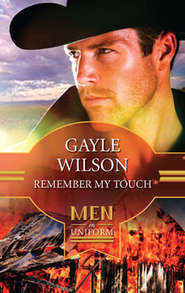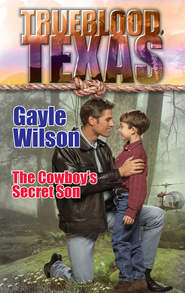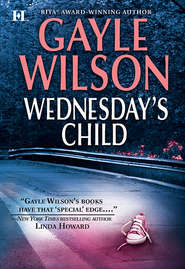По всем вопросам обращайтесь на: info@litportal.ru
(©) 2003-2024.
✖
The Inquisitor
Автор
Год написания книги
2018
Настройки чтения
Размер шрифта
Высота строк
Поля
She knew. She knew exactly what he was. And she knew what was going to happen to her. It was all there in the beautiful dark orbs locked on his face.
Her eyes widened, even as they stared up into his. They were no longer defiant, however. He had seen to that.
The only thing in them now were the questions neither of them yet had answers for.
When will this be over?
When will you let me go?
When, dear God, will you finally let me die?
One
“One more question, Dr. Kincaid. If you don’t mind.”
The damp December air had seeped through the multiple layers of clothing Jenna had donned in preparation for this interview. The station had insisted the clip be filmed in front of the mall, so that its steady stream of Christmas shoppers would be visible behind them. Although Jenna acknowledged it was an appropriate backdrop for a segment on holiday depression, that didn’t mean she was enjoying the setting.
As the largest mental health practice in the greater Birmingham area, Carlisle, Levitt and Connor was called on throughout the year to furnish speakers for a variety of informational workshops as well as for interviews on local news programs and talk shows. Those requests were unusually heavy this time of year, so the psychologists and psychiatrists on staff rotated the responsibility. Tonight had been her turn to be the public face of the practice.
Normally Jenna didn’t mind her thirty seconds in the spotlight. The visibility brought in new clients, which was beneficial to everyone. Sometimes they asked for an appointment with whichever of the group they’d seen on television or heard on the radio. And at this particular time of the year, it was never a bad thing to have increased billing.
“Of course,” she said, smiling at the young man who looked all of eighteen. She suspected he might be one of the station’s interns. Either that or the passage of another year had made her more aware of her own age in comparison.
At thirty-four she’d accomplished most of the goals she’d set for herself. At least, she amended, the professional ones.
There was plenty of time for the rest. Something she’d been telling herself for the last five years.
“This afternoon the police department conceded that the murders of Sandra Reynolds, Margaret DeSpain and Callie Morgan were the work of one killer,” the reporter said. “What can you tell us about the person who might have perpetrated those crimes?”
Jenna hadn’t yet heard that the police had issued that statement. Of course, she’d been seeing patients up until she’d left the office. Even if she had known, she wouldn’t have been prepared to comment publicly on those murders. This was outside the scope of the subject matter she’d agreed to, as well as outside any area of expertise she might claim.
She allowed the smile she’d been holding for the camera to fade, considering the topic that had just been introduced. She took a breath as she tried to decide the best way to handle the kid’s question before settling on simply telling the truth.
“I’m really not in any position to answer that. Not only have the details of those crimes not been made public, I’m not a profiler. Forensic psychology is a very specialized field, one I have little training for.”
The reporter’s mouth had tightened as she talked. A dull flush climbed up his neck and into his cheeks. It was obvious he felt her answer was either deliberately nonresponsive or, worse, a slam at his interviewing skills.
“I realize that,” he said quickly. “I wasn’t speaking in the particular. Just tell our viewers in general what makes a psychopath like this tick.”
From his standpoint, the amended question was a good recovery. From hers, it left her as much under the gun as the previous one.
Other than the courses in abnormal psychology she’d taught as a grad assistant, Jenna hadn’t had much occasion to think in depth about the kind of sociopath who enjoyed torturing and then killing women. And it was evident from the few details that had been released about the condition of the three bodies that this one found great pleasure in the suffering of his victims.
“From what I’ve read,” she said, choosing her words carefully, “this killer doesn’t appear to be psychotic. He’s apparently very well organized, selecting his victims with care and carrying out the murders while leaving behind little forensic evidence that might help the police.”
“He’s killed three people, and you’re saying he isn’t crazy?” The reporter’s tone was mocking, allowing his skepticism of that full rein.
“He’s clearly a sociopath, but…” Jenna hesitated, thinking how difficult it was to use appropriate terminology when the public had such clear, if erroneous, notions of what words like crazy, insane and psychotic meant. “The killer’s obviously incapable of feeling compassion for his victims, no matter how much they suffer, but if you met him in a social or professional environment, you might not notice anything out of the ordinary. Other than possibly thinking how charming he is.”
“Which would help him in getting his victims to trust him.”
“Unfortunately. Although he’s clearly manipulative, he may also be very personable and articulate.”
“So what creates someone like our charming sociopath?”
“No one really knows. The current thinking is that biological factors may play a role, some genetic predisposition if you will. There’s no doubt, however, that the majority of these people were also the victims of childhood abuse—either physical or emotional or a combination of the two. Some case studies done on serial killers reveal that mistreatment was both prolonged and severe. It isn’t hard to understand how a child subjected to isolation, a lack of affection, physical and mental domination, or actual physical abuse might become an adult who lacks the ability to feel normal empathy for his fellow human beings.”
“Surely you’re not suggesting that every abused child grows up to be a Ted Bundy.”
“Actually, a very small percentage do. However, it is a common background for those we’ve had the opportunity to study in depth. Unfortunately, we can never know which children will emerge from those situations to become sociopaths. Or more importantly, which of those sociopaths will go on to kill.”
“Because they’ve been trained in inflicting pain early on?”
“Pain. Domination. They desperately need to be in charge, possibly because as children they had so little control over what was happening to them.”
“You sound as if you have some sympathy for them, Dr. Kincaid.”
“I have sympathy for any child who’s abused. They’re helpless to prevent what’s being done to them, often by the very people who should be their protectors.”
“I meant that you seem to feel sympathy for the sociopaths they eventually become.”
As a psychologist who had read study after study detailing the horrors of the abuses she’d just spoken about, Jenna supposed that was true. Certainly in the abstract. In light of what had been made public about what had been done to the murdered women…
“Not all sociopaths kill,” she said again. “When they do, they must, of course, be subject to the laws that govern the rest of us. Once they’ve killed, it’s unlikely they’ll stop on their own. Before that can happen, they have to be apprehended. I hope the police find something to help them very soon, some piece of evidence that will lead them back to the murderer. Or that someone who knows something about those crimes will come forward with the information.”
“So…you’re saying he’s definitely going to kill again.”
And Merry Christmas to all, Jenna thought, realizing the trap she’d fallen into.
Still, there was very little that could be said in response to that question except the brutal reality. Despite the fact that hearing it was likely to inflame fears that had been rampant in the community even before today’s announcement, she really had no choice.
This was something else the killer would feed off of. Not only would the murders themselves give him a sense of power, so would the media attention they’d attracted, such as this interview, and the terror it would create.
She should have cut this kid off without answering his original question. Since she hadn’t, she could in good conscience now do nothing less than tell the truth.
“If he’s not caught. It may not be here. Not if the police get too close to discovering who he is, but…even if they do, he won’t stop killing. Not until he’s finally been taken into custody.”
“Or until he’s dead.”
Sean Murphy had already put his finger over the off button on the remote, when something made him hesitate. The reporter was busy closing out the segment, probably reiterating what the female psychologist had said. Nothing of what he was babbling about registered.
Sean was focused instead on the woman standing beside the interviewer, her hand clutching the collar of her coat as if trying to keep out the cold. It was clearly a defensive gesture.
An unconscious one? Or was it possible she was aware of how closely she matched the profile of the killer’s victims?
That was unlikely, he decided, since the local cops hadn’t yet publicly connected the latest three to the others. Maybe he should warn Dr. Jenna Kincaid that she met almost every one of the criteria the task force had put together over the course of the past four years of their investigation.
Late twenties or early thirties, Sean assessed. Tall and slender, with dark hair and eyes. Even her clothing, professional rather than provocative, followed the pattern the bastard had established with his first murder, which they now believed had been more than seven years ago.











